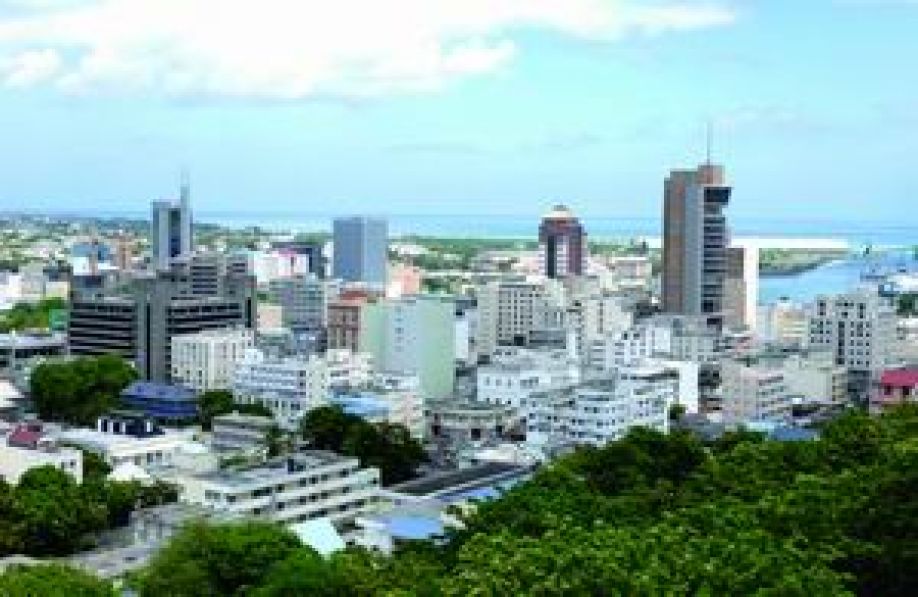The island is also a key stop overfor inter-emerging market trade and investment. "[There are] around 699 global funds targeting promising emerging countries including massive investment in Asian, African and European countries , " says D ev Chamroo, the director of planning and policy at the Board of Investment.
Investor in Africa, and Asia.
Growing interest in the investment into Africa seems to be among the most important incentives for Chinese companies' increased interest in the island. The island is a member ofCOMESA (the Common Market forEastern and Southern Africa) and SADC (the South African Development Community), two of the largest and most successful trade blocks in Africa, which gives the island, or those incorporate on the island, easy access to economies across Eastern Africa. Mauritius has36 double taxation agreements (DTA) in force, which help countries transit investment through the island, 14 of them are with African countries.
"Our long term vision is the operation of regional headquarters activities in Mauritius and the positioning of Mauritius as the preferred gateway for investment into Africa, particularly from India and China," said Yatin Varma the attorney General of Mauritius, at the opening of Bedell Cristin Group's new office in Port Louis.
But despite the island's proximity toAfrica it's much more heavily involved with Asian finance. Approximately 77% of outbound investment from Mauritius goes into Asian countries, according to the Board of Investment. Today Mauritius is the number one FDI contributor in India with nearly 44% of Indian FDI inflows being routed through the Mauritian platform.
This hasn't been without controversy. The Indian government has accused Mauritius of allowing companies to make "round trip" investments, which essentially allows them to invest in India with a lower tax burden. Mauritius has maintained that tightening of their rules has made such transactions difficult, and there has been no substantial proof of money laundering, but still there was talk of India abolishing the country's DTA with Mauritius after the OECD admitted there were some "gaps" in the original agreement.
Interestingly, further tightening might turn out to be an advantage for Mauritius's economy, as changes to the DTA might need to establish a more substantive presence in Mauritius. Craig Fulton, from Conyers Dill & Pearman, points out that many companies investing through Mauritius have their main financial activity further offshore, in jurisdictions such as the Cayman Islands or Luxembourg. If these companies were forced to establish a larger business presence on the island, then financial activities further abroad would become mostly pointless.
A close relation.
This may be one of the reasons why Chinese relations with Mauritius have been consistently better than those with India. Chinese businesses are very interested in what the island has to offer other than offshore services. Chinese companies such as privately owned Huawei Technologies and the Shanxi Tianli Group or the state - controlled Taiyuan Iron & Steel Group (TISCO) andShanxi Coking Coal Group - are investing in Mauritius. According to Martyn Davies, director of the China Africa Network Deng Pufang, the son of Deng Xiaoping, has some money invested on the island.
The island also has agreements for the tariff free export of textiles to Europe and Africa, a boon to Chinese textile firms which have long had tariffs levied against them in those areas. Textiles will be a major part of one of China's first economic zones in Africa, a huge US$ 750 million, 521 acre project just10 minutes from Port Louis, the island's capital and largest city. According toThe Prime Minister of Mauritius, Navin Ramgoolam, this zone should create 42,000 new jobs. There is talk of granting Chinese citizens visa-free access to the island in the near future.
Limited Partnership.
The island is currently finalizing its limited partnership bill, which will be the most major new addition to its offshore offerings in several years, and a particular boon to fund managers and private equity firms. The new structure will allow the formation of companies with no shares, and with flexible investment structures. Partnerships are allowed to assign rights according to the owner's demands, rather than giving the same rights to all holders of a specific class of shares as in Mauritius' company law.
The new limited partnership can also be designated a "pass through entity" instead of a legal person, which provides further flexibility in tax planning. The ability to designate a corporation as a general partner also allows owners to mitigate personal risks for management.
"Limited Partnerships with their flexible structures that still offer limited liability for investors tend to be the vehicle of choice for private equity/venture capital funds. Once this legislation is in place, it will better facilitate both Chinese and other investors in making pooled investment into Africa," says Fulton.
Attracting Capital.
It is this environment of intercontinental trade and financial innovation that has attracted Asian capital, international law firms, and nobel laureates. With the island now firmly on people's maps, the country seems set to establish the sort of financial infrastructure that will bring investment from even further abroad.
Conyers Dill & Pearman's Fulton notes that the entry of a new competitor, Bedell Cristin Group, may be good for his bottom line. "It is good for Mauritius as a financial services jurisdiction to have international law firms opening offices here," he says "It raises the profile of the jurisdiction as a whole and [allows the island] to attract work to Mauritius that might otherwise not come here."
















